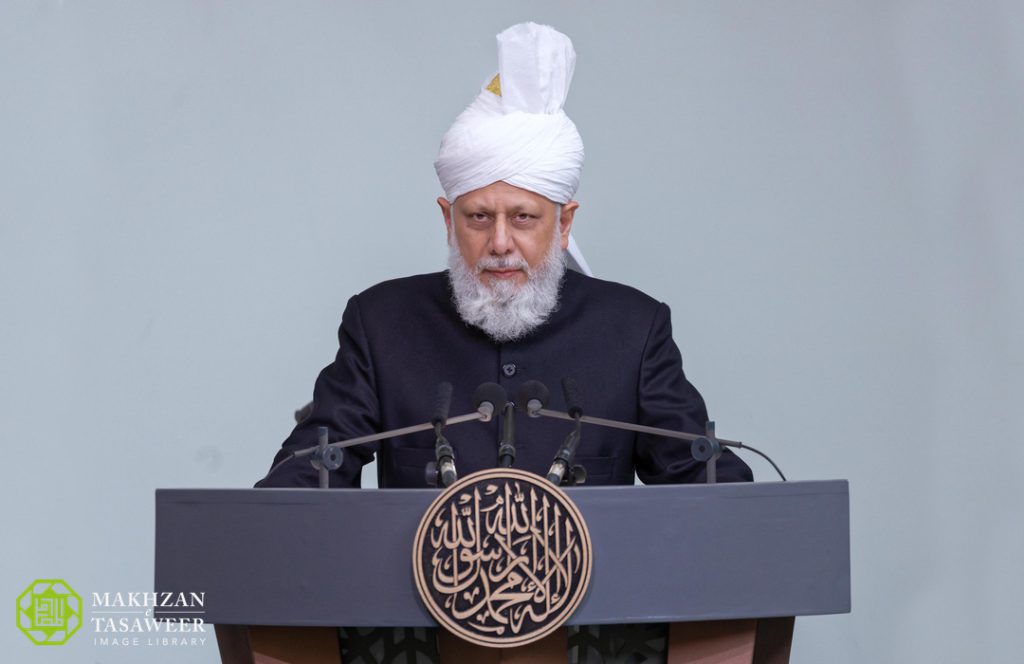“There is no compulsion in matters of religion.”
Holy Qur’an 2:257
Theocracies are contrary to the spirit of Islam. True Islam teaches that political leadership must not be partisan to any particular people, but must rather respect the beliefs and preferences of all peoples. There is no place in Islam for imposing one religious view on anyone else. The Prophet Muhammad, peace be upon him, established this as the ruler of Medina, where he guaranteed equal citizenship and self-determination to the various different ethnic and religious groups in the city at that time.

A theocracy is a state in which religious law is made civil law, binding upon all of its citizens. We see this in the modern day most clearly in some muslim-majority countries, such as Saudi Arabia and Iran. Religious precepts are forced upon citizens, leaving them religious by compulsion and not by choice. This is taken by many both within the Muslim world, and outside of it, as being representative of Islam’s teachings. It may surprise both groups therefore to discover that it is not.
The Holy Qur’an states:
There is no compulsion in religious matters. Surely, right has been made distinct from wrong.
Holy Qur’an 2:257
For me my religion, and for you your religion.
Holy Qur’an 109:7
O Prophet, thou art only a warner over them — thou hast no authority to compel them.
Holy Qur’an, 88:22-23
This means that there can be no situation permissible in Islamic law for a teaching of Islam to be forced upon its citizenship simply because it is written in the holy book of Islam. Not only is this discriminatory against the adherents of other beliefs, but it also undermines the entire system of religious spirituality. In religious spirituality, it is the very choice to act on the teachings of Islam that makes one worthy of merit. If one is forced to pray in the Islamic way, or wear the headscarf, then what merit does that person deserve in God’s eyes? Moreover, such a system is entirely counter-productive, for it engenders bitterness within the people towards the established faith.
Those who support a theocratic vision of Islam are refuted not only by the Qur’an, but by the practice of the Prophet Muhammad himself, peace be upon him. When he was chosen as the head of state for the metropolitan Medina, he found himself at the head of three major religious groups — the Muslims, the Jews, and the Pagans. What did he do? Did he make Islamic law binding upon them, compel Islamic professions, and enforce an Islamic dress code? Far from it. In fact, he drew up the historic charter of Medina.
The Charter of Medina
This charter was ratified by all the major groups of Medina, and enshrined responsibilities of each group to the others in shared citizenship. Rather than enforcing one religious law on others, the Prophet pledged to judge each group by their own laws — the Muslims by the Muslim law, the Jews by Jewish law, and the Pagans by their traditional law. He thus allowed the citizens of his state the right to self-determination, shunning the tyranny we see today in many muslim-majority countries. The Prophet’s time was one where people identified sharply along religious and ethnic lines. Today’s polity is more mixed, with blurring along the edges of traditional ethnic and religious lines. Thus translated into a modern context, his practice would require the citizens en masse to decide what laws they wanted to represent them — giving them the right to self-determination — as seen in theory by modern democracies. The Prophet’s example was thus thoroughly modern, indeed many hundreds of years beyond his time.

A shining example of the separation between mosque and state is today seen in the Khilafat of the Ahmadiyya Muslim Community. The Khalifa shuns all political allegiance, and provides a spiritual leadership that transcends nationhood. Hazrat Mirza Masroor Ahmad, the current Khalifa, leads many millions of Muslims across over 200 countries in a worldwide spiritual fraternity.